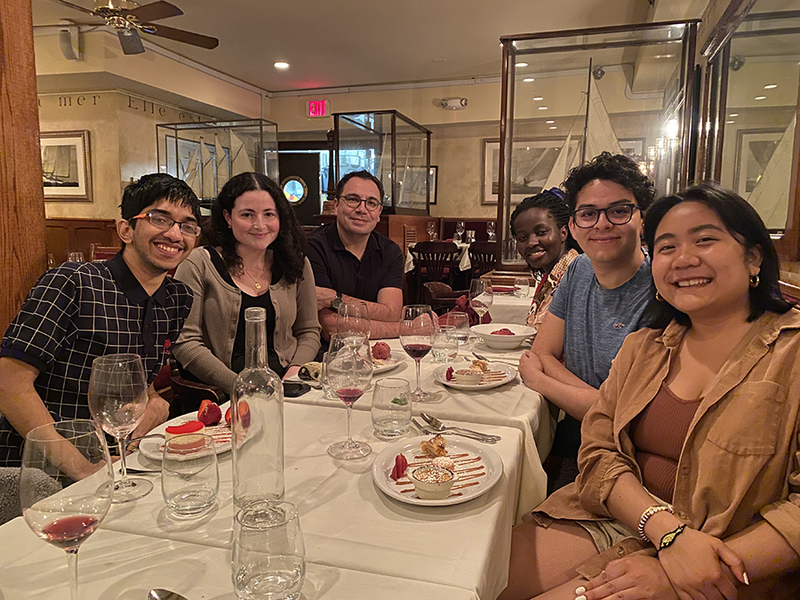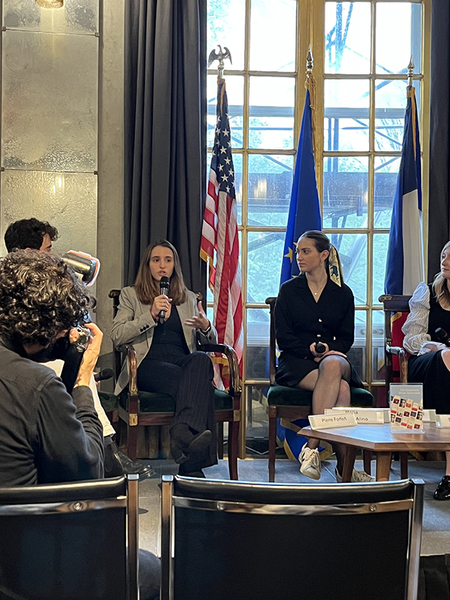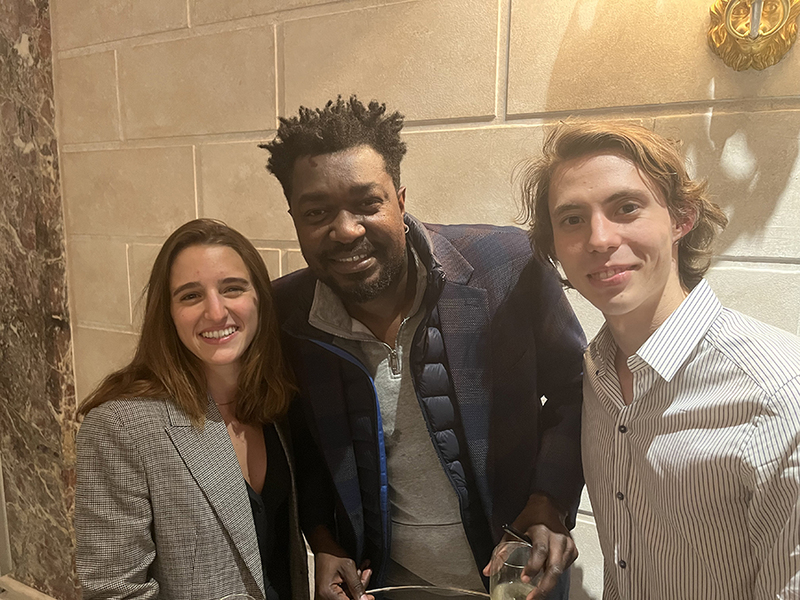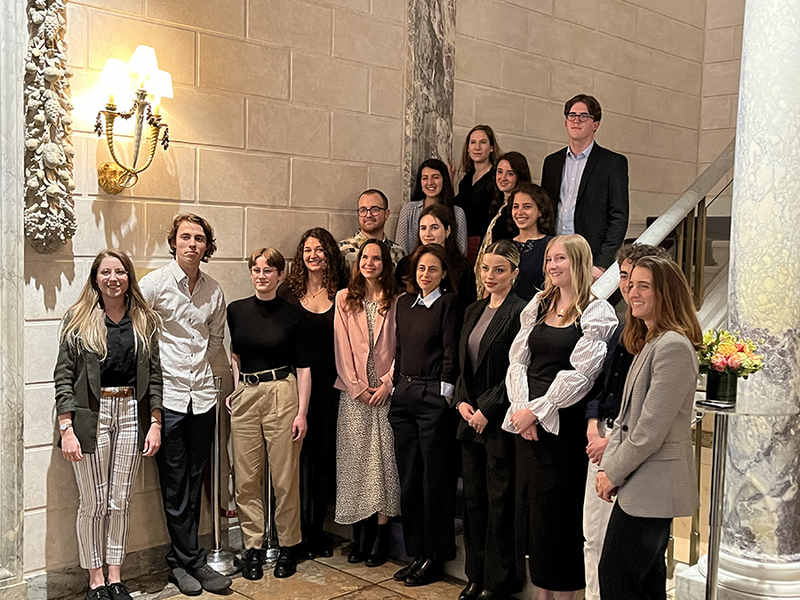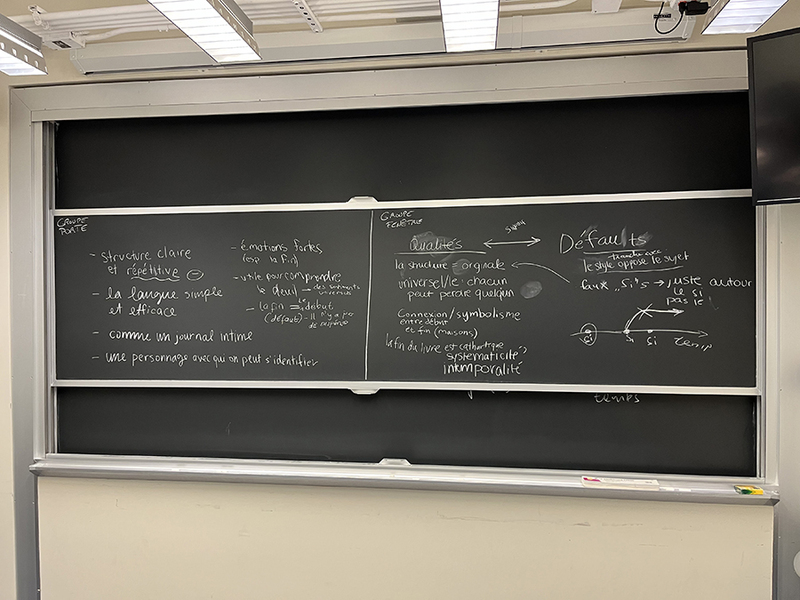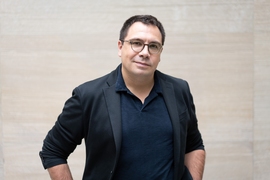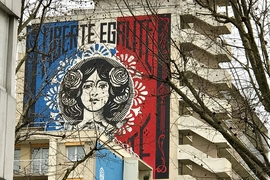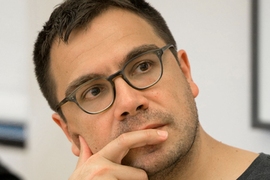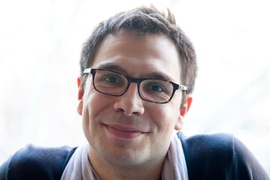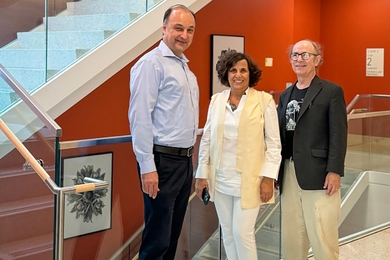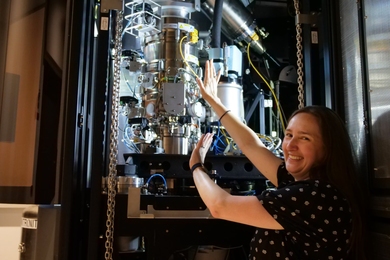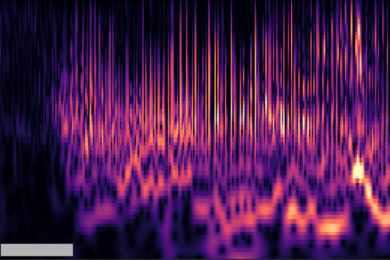MIT’s French+ Initiative was recently designated as a “Center of Excellence in French Studies” by the Embassy of France, during a 2022 campus visit by Philippe Etienne, then-ambassador of France to the United States.
The French+ Initiative gathers scholars working across the humanities and social sciences at MIT whose research and teaching center on the French and francophone cultures and societies. It also serves as a hub appreciated by students, who can find numerous French-related activities under the same banner, such as the MIT Global France Seminar, the January Scholars in France program, and various French cultural events.
With the initiative’s new designation, MIT became part of a network of the best French Studies programs in the United States. It also came with the opportunity for MIT students to participate in the selection committee earlier this spring for the US Goncourt Prize, the U.S. branch of the most important literary prize in France.
Bruno Perreau, the Cynthia Reed Professor of French Studies and founder of the French+ Initiative at MIT, successfully applied for MIT students to take part, and also saw an opportunity to design a course around the prize, class 21G.320 (Introduction to French Literature). The course is cross-listed in both the Global Languages and Literature sections.
“Rather than doing just a traditional intro to French Lit chronologically, I thought the US Goncourt Prize could be an excellent experience provided it was connected with the study of French classics,” Perreau says. “Pedagogically speaking, what's at stake is to have a very MIT experience, learning hands-on about French literature. Students worked on the book selection and selected their laureates.”
Perreau collaborated with other centers of excellence at universities such as Princeton, Yale, and Columbia, who were pursuing similar efforts. During a ceremony in New York earlier this year, students from MIT joined students from these institutions to discuss and choose a winner. Students participated in two roundtable debates: one on the selection process and one on the book topics.
“It's a very collaborative experience because it's not one student studying by himself or by herself, this or that text.” Perreau says. “It's really bringing all the students together, their expertise, their standpoints to discuss, argue, disagree, and eventually reach a conclusion on a certain ranking of books based on different criteria, which we also discussed along the way.”
The New York ceremony this spring was presided over by Anne Berest, the recipient of the inaugural US Goncourt Prize for her book, “The Postcard.”
Students met both Berest and this year’s winner, Makenzy Orcel. Orcel, who won for his book “Une Somme Humaine,” happened to be in New York during the ceremony. Once named, he was contacted and able to attend, “which was an even greater reward for the students to be able to share their thoughts with both authors,” Perreau says.
As a native speaker, during the course Perreau says he refrained from providing his thoughts on the books, so as not to influence choices. Those from different backgrounds provide distinctive perspectives, which is especially the case of MIT students.
“The most unique feature of the class was the opportunity to have such a direct involvement with the literary process,” says rising senior Ishan Ganguly. “We had interviews with the authors themselves and played a role in the selection of the winner. This gave a great insight into the mind of an author, the state of contemporary literature, and the process of judging a work.”
Some students were surprised to learn of the class’s focus on the US Goncourt Prize, but all valued the approach by the end of the semester.
“This unique opportunity was especially valuable for MIT students like me, as it allowed us to dive into a completely different world from what I am used to seeing on campus,” says Artem Lukoianov, now a PhD candidate in electrical engineering and computer science. “Being on the jury of such a prestigious literature prize was very unexpected, but definitely a very memorable and inspiring event.”
To ensure the ideas and intellectual conversations were grounded in contemporary reality, the course touched on the process of selling books as well. Students got a taste of the French literary world’s commercial and business aspects. As is usually the case with prominent awards, promotion and marketing are a big part of the US Goncourt Prize.
“I think they learned a lot about their own voice through this experience and what it means to be socially entitled to judge,” Perreau says. “Your selection impacts an author’s career. You have no choice but to become more aware of the intentions of the author, the life of the author, and I would say, the fragility of the author.”
Interestingly, the MIT students participating as jury members of the US Goncourt Prize were almost all undergraduates. Those from other universities were mostly graduate students. Perreau says he has rarely had students so advanced in terms of their understanding and practice of language.
“I definitely noticed my ability to comprehend written French improve over the course of the semester, especially given how complicated the literary styles of some of the books were,” says Abraham Corea Diaz '23, “I also enjoyed our discussions surrounding what makes a ‘good’ piece of literature, considering equally technical elements such as literary style and structure and personal elements such as how the books made us feel.”
“Getting this opportunity was one of the most special opportunities I’ve had at the Institute, and it was the chance to practice all that I had learned from my French education at MIT,” adds Maria Ascanio Aliño '23. “We were lucky to meet both Anne Berest and Makency Orcel at the ceremony, as well as a group of extremely interesting French students.”
Next spring, MIT Theater Arts Professor Claire Conceison, an associate of the French+ Initiative, will teach a new class: “Staging Frenchness.”
